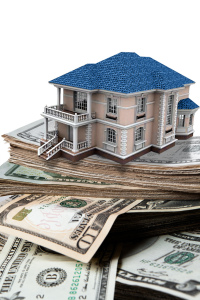Clik here to view.

Image by 401(K) 2012 via Flickr.
Owning and managing rental properties can be a wonderful and profitable experience, but only if you first pull together a whole lot of details. None of this is rocket science, but your rental property profits can crash and burn if you don't cover all your bases.
If you're looking to buy properties at a deep discount, that's fine – but making price the top selection criterion is rarely the best approach. There are a number of market-related factors that can create high vacancy rates, forcing you to reduce rents and lose your cash flow.
There are a few important considerations when giving your rental property search its due diligence. Check them all off your list, and you'll be well positioned to have a great investment.
Choose your location
Sure, we all know the real estate mantra "location, location, location." It's normally applied to buyers, but renters are choosy in this regard as well. Surveys consistently tell us that renters want to be close to work, and "walkability" – easy access to entertainment, shopping and other neighborhood activities – is also high on their list for property selection.
Areas desired by buyers are also preferred by renters. This speaks to the point that price is not always the most important factor: It may cost you more to buy in an area of high demand, but you will be able to charge higher rents to make up for it.
Know the market
When considering a location, you should be thinking about market factors as well. You want to buy in areas where people want to live, but there will likely be many areas that fit that description. Do your research. Determine the relationship between home prices in an area and the prevailing rents. Call around like a prospective tenant and ask about home features and rent amounts. Keep a spreadsheet by neighborhood and plan to update it before any future purchases, because markets change. Before lease expirations, you'll want to take a fresh look to see if a rent increase is in order.
Evaluate the risks of changing neighborhood dynamics
Why do people choose a particular neighborhood? If it's tied to employment at a single major business or factory, there is a risk of that employer leaving the area or laying off people. Just as you wouldn't invest all of your money in a single stock, it's better to reduce this type of risk by choosing neighborhoods with diverse employment opportunities and desirable shopping and entertainment options.
Most renters, like homeowners, want to live in a neighborhood that feels like a residential community. Before you buy, investigate potential zoning changes. In some older neighborhoods, new zoning rules might allow the conversion of homes to commercial spaces, changing the character of the neighborhood and potentially reducing rental demand.
Decide whether to finance or purchase with cash
One of the benefits of rental property ownership is the ability to leverage with mortgage financing. Instead of paying $150,000 in cash to buy a single property, you may decide to finance three properties with a $50,000 down payment on each. But, only do this after carefully considering your situation. Your net profit from each rental will be lower, reducing your cash flow; if one or more of your tenants moves out suddenly or has trouble paying the rent, will you still be able to afford your mortgage payments?
Look for bargains – in the right neighborhoods
While price shouldn't always be your primary criteria, any seasoned investor will tell you that a successful investment begins with a purchase below current market value. Learn how to value homes or apartments like the professional real estate agents do it, then set your discount goal and stick to it. If it's a foreclosure property, be careful to factor in the costs to make it ready to rent.
Always buy below current true market value, and aim for as deep of a discount as possible. This locks in a profit from the first day of ownership and increases your rental cash flow.
Along with the price, consider the neighborhood history of property appreciation. Some always do better than others, and paying a few more bucks for a home in a neighborhood that appreciates faster is a great move. Someday you will be selling, and you want a nice big check at the closing table.
Determine your total cost
You must calculate your costs as accurately as possible. You'll know the property taxes starting out, but check the history of tax increases in the area and factor that into your decision process. Make a realistic estimate of immediate and long-term repairs, maintenance and major equipment replacement (such as air conditioning or heating systems).
Have a marketing budget – you'll want to fill vacant units as quickly as possible, and advertising is the best way to do that. Speaking of vacant units, you need to estimate vacancy and credit costs moving forward. In other words, what will it cost to rehab the unit for the next tenant, and how often do you anticipate vacancies? If you have lower-cost rentals, you might face more problems with non-payment of rent, as your tenants often live on the edge financially.
Remember: It's all worth it
Being a successful landlord requires a lot of due diligence, but if you do it right, you can often enjoy double-digit returns for many years – and a profitable sale when you're ready to liquidate or roll up to a higher value property. Happy landlording!
